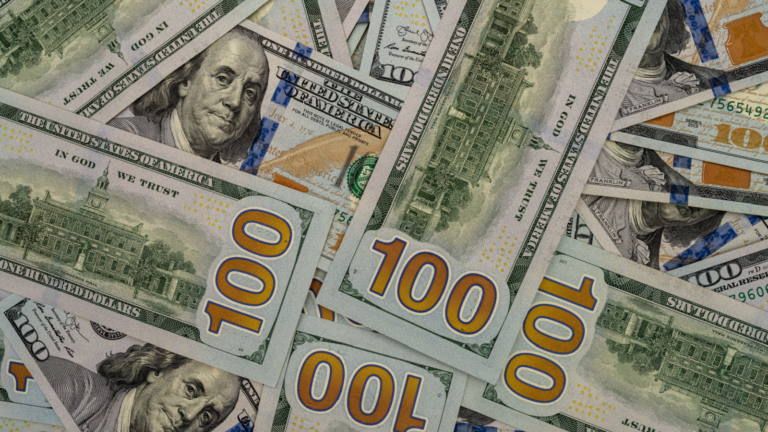The current five trillion-dollar companies listed on U.S. stock exchanges include Apple (NASDAQ:AAPL), Microsoft (NASDAQ:MSFT), Alphabet (NASDAQ:GOOG, NASDAQ:GOOGL), Amazon (NASDAQ:AMZN), and Nvidia (NASD AQ:NVDA).
These five and two others, Meta Platforms (NASDAQ:META) and Tesla (NASDAQ:TSLA), make up “the Magnificent Seven”.
The Globe and Mail published a story on Nov. 1 that pointed out the Magnificent Seven’s P/E ratio was over 40, while the remainder of the S&P 500 had a reasonable P/E of 15, nearly one-third the multiple.
The research team at Richard Bernstein Advisors LLC believes the imbalance is about to swing back the other way, providing investors an opportunity to invest in some great companies outside the seven names.
Therefore, rather than select the next three companies in line to become trillion-dollar companies, we’re going to stretch a little, selecting names that haven’t even got halfway there yet.
These are companies with market capitalizations of less than $500 billion and growing.
Taiwan Semiconductor Manufacturing (TSM)

Taiwan Semiconductor Manufacturing (NYSE:TSM) has a current market cap of $432 billion. Its valuation needs to increase by 132% to join the club.
TSM is the world’s biggest chipmaker. In late October, founder Morris Chang said increasing tensions between China and the U.S. over technology issues would hold the semiconductor industry back.
“I think that decoupling will ultimately slow down everybody. Of course, the immediate purpose is to slow China down, and I think it’s doing that,” noted Reuters. It reported Chang’s comments about the U.S. banning the export of certain chips and chipmaking tools to China.
Taiwan Semiconductor is investing $40 billion to build a chip fabrication facility in Arizona. Last December, it announced it would triple its investment in the plant. Nvidia CEO Jensen Huang called the investment a “game-changing development for the industry”.
While the company’s revenues are expected to fall by 10% in 2023, given the demand for artificial intelligence (AI), the long-term future remains optimistic.
Adobe (ADBE)

Adobe (NASDAQ:ADBE)vhas a market cap of $248 billion. Its shares have increased by nearly 62% this year. ADBE stock must stay in motion for the next 24-36 months to get to $1 trillion.
InvestorPlace contributor Jeremy Flint recently called Adobe a machine learning stock that will make investors rich. The software company for creatives has used machine learning in its products for more than a decade. Therefore, Flint believes this makes it eminently qualified to incorporate AI and machine learning tools into its products.
In November 2018, I suggested investors buy ADBE stock on the dip from its September highs. From January 2019 through November 2021, its shares rose 211%. Despite the drop in 2022, they’re still up 122% from November 2018.
Its share price could land at or past $700 by this time next year. Of course, anything but a mild recession would put that on hold for a while.
Of the 36 analysts covering its stock, 25 rate it overweight or an outright buy, with a $620 target price, 13% higher than where it’s currently trading.
AbbVie (ABBV)

AbbVie (NYSE:ABBV) is best known as the company behind the immunology drug Humira, which treats moderate to severe cases of rheumatoid arthritis. However, some of its newer and developing products will get it to the $1 trillion mark.
AbbVie reported Q3 2023 results on Oct. 27., better than expected. Revenue came in at $13.93 billion and earnings per share were $2.95. The top line beat analyst expectations by $210 million, while bottom-line earnings were eight cents ahead of the consensus estimate.
However, its revenue and EPS were lower than a year ago, down 5.9% and 19.3%, respectively. Also, Humira saw its global sales decline by a whopping 36%.
However, Skyrizi and Rinvoq, its other two big immunology drugs, saw revenues increase by 52% and 59% in the third quarter. Combined quarterly sales were just $311 million shy of matching Humira’s quarterly revenue.
Perhaps the best example of using what you’ve got in new and improved ways is Botox, which it inherited in its May 2020 acquisition of Allergan. Created as a cosmetic treatment for wrinkles, it is used as a therapeutic for treating migraines and muscle pain. In Q3, Botox Therapeutic revenues were $748 million, 7.4% higher than a year ago.
Further, yielding 4.4%, it’s an attractive buy for dividend lovers right now.
On the date of publication, Will Ashworth did not have (either directly or indirectly) any positions in the securities mentioned in this article. The opinions expressed in this article are those of the writer, subject to the InvestorPlace.com Publishing Guidelines.
